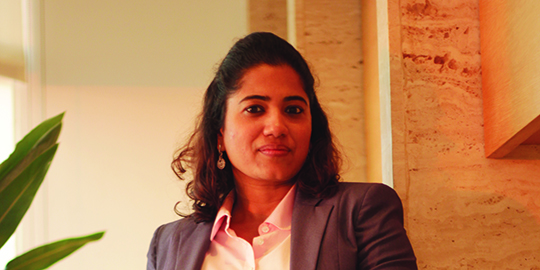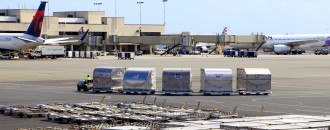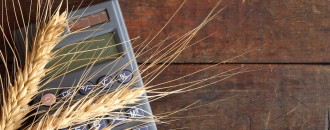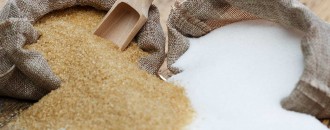
Trading with Grace
We all have heard and read exporters' success stories. At times, we do stumble upon a trader's story too. But Vaishali Sarwankar's case is exceptional. She is not just an ordinary trader, but one of the few Indian women who are into commodity trading in the international market!
Vanita Peter D'souza | March 2016 Issue | The Dollar Business
One moment, she appears to be the girl next door, and the very next, she is the Director of a company with an annual turnover of $500 million. One could simply introduce Vaishali Sarwankar as a lady who has not just carved herself niche in the male-dominated commodity trading business, but also tasted tremendous success. It was just five years ago, in March 2011, when Vaishali took over the Atlantic business. Today, her company procures commodities from various parts of the world, mostly from India, and supplies them to the rest of Asia and the Middle East. While agricultural supplies originate from India, Argentina, Brazil, Colombia, Panama, Uruguay, Canada, Indonesia, Malaysia, Thailand, amongst others, energy, metals and minerals are sourced from Indonesia, Australia, Brazil, Colombia, and others. Before Atlantic, Vaishali worked for about a decade with Bunge, a global agribusiness and food company (well known as an international soybean exporter). This is where she learnt her trading skills. Vaishali, who is one amongst a handful of Indian women traders in the international market, attributes her success to her male colleagues, and her father, “What I am today is all because of the men around me, including my father. I’m thankful to them.” Just like any other ordinary girl, she has to serve her family in Mumbai. For her, women cannot taste success by sidelining their traditions, but by gaining confidence. According to her, "It's high time our society realises how hard it is to be a woman, wherein, each day, she is expected to think like a man, act like a lady, look like a young girl, and needless to mention, work like a horse." She has chosen to remain single for her career and yet, she has adopted about 40 girls. A lady who has travelled across continents, she believes the current slowdown in commodity trading will not last long, and as such demand from Africa, Middle Eastern and other South Asian markets will propel the business' growth story. Confessing that she hasn't come across a single woman trader during her course of five years, she is determined more than ever to make the world her business playground. TDB: You are the driving force behind your company, which ventured into a male-dominated trading business. How did you carve a niche for yourself?
Vaishali Sarwankar (VS): I have completed my MBA from NMIMS (Narsee Monjee Institute of Management Studies) in Finance. I am not a theoretical person, but I am more of a marketing and street-smart person. When I joined Bunge, I had the chance to work with legendary traders like Sanjay Jain, who is considered to be the star of the soybean market. I joined as a trading assistant, where I was helping him. My job was issuing trade tickets, getting the contracts passed from Singapore, executing the contract, preparing reports, etc. My bosses were very encouraging and from them I learnt all my trading skills. Atlantic happened five years ago. India is our forte, and I have always had great hopes from the market in India, especially with agricultural products. We thought why not use our experience and resources, and so, Atlantic was born. It has been a terrific journey ever since.
TDB: You are amongst the few Indian women commodity traders in the international market. Where did it all start?
VS: My basic knowledge about trading was nurtured during my initial days in Bunge, the international trading firm. We use to procure from India and send it to South-East Asia and Middle East. So, I have 15 years of experience in international trading.
TDB: You are a trader, an entrepreneur by profession, and you belong to a conservative Maharashtrian family. How do you adorn your professional hat, and manage your family on the other hand? VS: We come from the Baniya community, so our forefathers were banyas i.e. traders. Only my father was into service. Even though I belong to a conservative family, I was blessed with a supportive father. Yes, I have been told to cook and serve people. If there are no maids around, I have to serve my driver with a glass of water. If I don’t do that, my parents will. I can’t forget my traditions. My parents are my priority, along with my three sisters. All three sisters are married, but honestly, I’m far too focussed on my career.
TDB: Tell us about Atlantic’s international business? Are you planning to tap any new market?
VS: Our major market is India for procurement, and we sell in Korea, Taiwan, Indonesia, and the Gulf nations. We have recently started buying cashew nuts from South Africa. We are also exploring Sri Lanka and Bangladesh for sourcing.
TDB: How important is India for you, as a market?
VS: India is very important. Products like corn, sugar and barley are in demand. We have got orders, we already know how much to procure, and we already have a business plan. And we know India will help us complete these orders. If our country invests more in infrastructure and improves its banking system to support trade, India has the potential to fulfil the world’s demand.
TDB: What commodities come into the bulk trade of Atlantic? Do you have any plan to further diversify your commodity portfolio?
VS: We are very good in agri-commodities. You name an agri-commodity and we are trading it. We recently started trading in cashew nuts from Ghana, and spices from Vietnam. We will continue exploring new markets.
TDB: How has the global commodities meltdown affected trade? When do you expect a reversal?
VS: Yes, there is a slowdown in the global commodity market. The market is not moving the way it should have been. But the slowdown, I believe, is temporary. We think in the next few months, everything should be fine.
TDB: Tell us about you trading experience in the international arena. What are the major difference between Indian traders and traders from other parts of the world?
VS: Well, let me tell you something. All traders are aggressive and dominating. Do you know how Indian traders speak – "Dhanda kaise chal raha hai?" (How is work going on?), "Maal uthaya ki nahi?" (Did you pick the shipment), "Load hua ki nahi?" (Did you load the shipment?). When I started my career, I was shocked – I did not like this tone and I continue disliking it. My language is still clean and sober. However, like I told you – traders have a different aura and I get a kick from working with these traders both in India and abroad. Each and every trader in this world is loud and aggressive. 
TDB: How many Indian women commodity traders have you come across in you career so far?
VS: I haven't come across even a single woman trader. But from what I understand there are only 2 or 3 of them and based out of Delhi or Mumbai, but I haven't had the good fortune of meeting these women traders.
TDB: You are a true inspiration for many women in India. Would like to share your success mantra?
VS: Never give up! Remember, nothing is impossible. All you need to do is try hard. There will be people who would discourage you, then there are people who will try to influence you, but you should never ever lose your focus.





.jpg)
 to success.
to success.